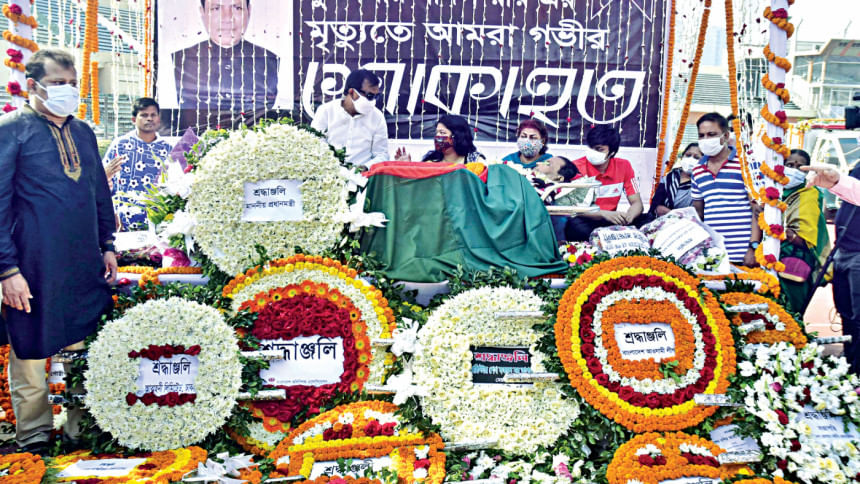An unyielding spirit

An iconic footballer and sports organiser, Badal Roy lost his battle with cancer and breathed his last in Dhaka on Sunday.
Although Roy's battle with cancer was a brief one -- he was diagnosed with Stage-4 liver cancer in early November -- the national award-winning sportsperson was fighting on several fronts over the last few years.
He had successfully battled against a stroke which had left him partially paralysed in 2017, yet at the Bangladesh Football Federation, he was battling against a different sort of malaise. He raised his voice against all that was rotten in our football -- the corruption and the lack of vision, which had stunted the growth of the game since the time Roy had hung up his shooting boots some three decades earlier.
Following a prolific career of more than a decade with the Black and Whites of Mohammedan and for the Red and Green of Bangladesh, Roy turned his attention to the organisational front. He had served as manager of his beloved club on several occasions and became a joint-secretary at the BFF before serving as its elected vice-president for three terms.
Both places, though, had become corridors of power where financial considerations had long replaced those of preserving the purity of the beautiful game.
Roy had left Mohammedan -- a club which was his home as a footballer and an organiser -- more than a decade ago as the control of the traditional powerhouse went to people who had hardly any credentials as sports organisers. The revelation of the casino scandal last year saddened him, like many of the Mohammedan players and fans of that era. He returned to the club and led the cleansing act. He believed he was winning that battle and that Mohammedan would once again emerge from the shadows of failure and squalor.
Like his beloved club, the BFF had, too, become a place more inclined to wielding power than executing footballing plans and vision. Sitting at his office at the BFF House in the last few years, he would often vent his frustration to journalists at not being able to contribute to the development of the game the way he wanted. He argued with the hierarchy all the while keeping the cordiality of the relationships which were forged on football pitches decades ago.
The last days of his life were tragic. Despite his physical limitations, he actively wanted to change the system in football, but his desire did not meet the agenda of many. He lost in the election, which seemed inevitable, yet it was probably too hard to take for a man who had won many a battle before.
The "pressure from quarters" during the election and agony of that defeat broke him down mentally while physically he was giving in to one disease after another before being consumed by cancer.
It is a sad end to a courageous and eventful life, but it should not be the end of the dreams he had fought for.

 For all latest news, follow The Daily Star's Google News channel.
For all latest news, follow The Daily Star's Google News channel. 



Comments